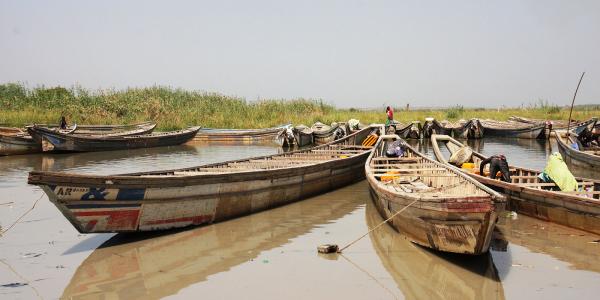Niger confirms intention to Accede to Helsinki Convention
20 Mar 2023 by The Water Diplomat

On the 2nd of March, the government of Niger confirmed its intention to acceded to the United Nations Convention on the Protection and use of Transboundary Watercourses and International Lakes – otherwise known as the Helsinki Convention. This announcement follows a stakeholder workshop jointly hosted by the Ministry of Hydraulics and Sanitation of Niger and the Secretariat of the Convention. Niger has been participating in the activities of the Convention since 2018.
Although the Helsinki Convention originated as a convention for the pan-European region in 1992 and entered into force as such in 1996, an amendment in 2016 made it possible for all UN member states to accede to it. Since 2016, Cameroon, Chad, Ghana, Guinea Bissau, Senegal and Togo have acceded to it, while countries such as Nigeria, Uganda, and now also Niger, have commenced the process leading to accession. In the context of Sustainable Development Goal 6 on water and sanitation, one of the 11 indicators of progress include the “percentage of transboundary basin area within a country that has an operational arrangement for water cooperation”. As such, acceding to a convention such as the Helsinki convention is a step in the direction of having an ‘operational’ arrangement for cooperation.
Niger shares 90% of its water resources with neighbouring countries and is a signatory to the Lake Chad Basin Water Charter. It is also a member of the Niger Basin Authority and the Lake Chad Basin Commission. By becoming a party to the Helsinki Convention, the entirety of Lake Chad will be brought under the framework of the convention. Lake Chad’s surface area has been steadily declining from 25,000 km² in the 1970’s to less than 1,500 km² today. Approximately half of the decline in water levels in Lake Chad are attributed to climate change, while the other half is attributed to human interventions such as damming and irrigation. Local livelihoods are largely dependent on the resources of the lake and are being affected negatively by the shrinking of the lake. In addition, a report compiled by UNDP points to local insecurity caused by banditry, abductions, robbery, and the rise of violent extremism in the region. The Lake Chad Basin Commission is seen as a common platform for a regional approach to combine security interventions with longer term development interventions.
